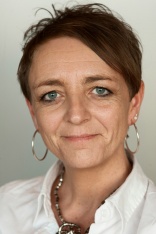Home › magazine › european reports › Cleaning a complex combination
Cleaning - a complex combination
18th of September 2020UK reporter Lynn Webster on the science of cleaning.
Cleaning has often been described as a science, in fact it is decades since we had the City and Guilds qualification in Cleaning Science providing the sound scientific background to many cleaning routines and processes. Never more so has the science behind cleaning being at the forefront of everyone’s’ mind. Perhaps it is time to consider returning to some of that basic learning?
It has certainly been a very strange summer with the obvious focus on battling the pandemic. We have been inundated by advice from all corners, some very useful, relevant and accurate alongside the plethora of ‘scientific’ studies, many without foundation or clear evidence. Our own government has repeatedly faced the challenges of conflicting advice and issued subsequent instructions that it then retracts or amends as greater knowledge is forthcoming.
Many applications have been developed to try and combat the threats from this virus however how many have examined the science behind some of their statements, claiming to providing the next unbeatable solution? Declarations of destroying the virus have been withdrawn for some products and literature has been updated following challenges to their exaggerated impact. After all it is not possible to ‘kill’ a virus. By definition it is not actually classified as being alive, so yes, they can be destabilised or rendered into an inert state but not essentially ‘killed’.
We have seen significant growth in the use of static sprayers and fogging machines over recent months, often featuring in social media and headlined on news bulletins promoting their promising results. Question the charge of the sprayer and the chemical being applied. In basic maths a negative will negate a positive so if they aren’t compatible the efficacy of the process will be significantly reduced.
One fundamental omission in all this is that there still has to be effective cleaning first before any such procedure for disinfection, sanitisation or otherwise is applied. The failure to clean correctly first of course jeopardises any effectiveness of the subsequent treatments. This goes back to the old adage that anyone can clean, yes but they can’t all clean properly.
Effective cleaning will always depend on the right training and when applied to chemicals encompassing the correct dilution rate and allowing sufficient dwell time for the product to act on a surface.
And unless a disinfectant has been proven directly against Covid-19, it is only guesswork
that it works, whatever the method or application used. Are our lives really being truly protected by guesswork!?
Delving further into the all the chemistry of cleaning would probably explode the mind however we are fortunate there is highly trained, qualified expertise available. Click on the links below where Dr Andrew Kemp, head of BICSc Scientific Advisory Board, has shared some of his information.
https://www.bics.org.uk/wp-content/uploads/2020/06/BICSc-Q-A-Myths-mist.pdf
Cleaning can truly be regarded as a science!










